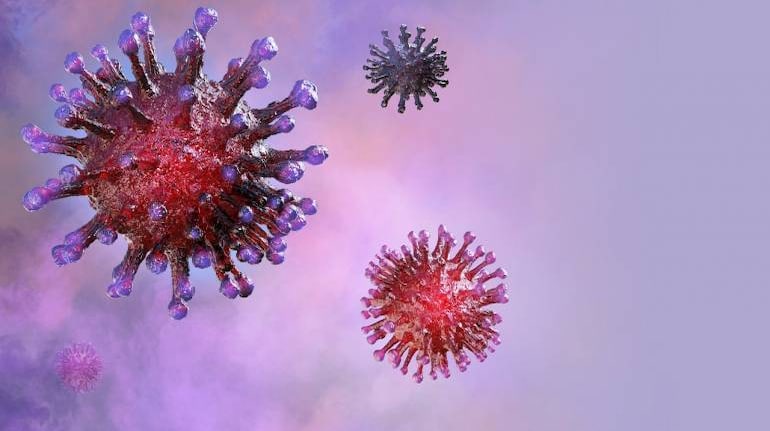



A new study has found that the Alpha and Beta variants of the novel coronavirus (SARS-CoV-2) have changed structurally due to protein spikes – necessitating the need for booster jabs of the existing COVID-19 vaccines.
The changed Alpha variant spreads faster, while the Beta variant evades immune responses, a study by the Boston Children’s Hospital found. The peer-reviewed paper, published in Science on June 24, the new SARS-CoV-2 variants are “spreading rapidly and there are fears the current COVID-19 vaccines will not protect against them”.
Titled ‘Structural basis for enhanced infectivity and immune evasion of SARS-CoV-2 variants’, the study suggests the need for a booster (dose) with an updated vaccine.
Led by Bing Chen, PhD in the division of Molecular Medicine at Boston Children’s Hospital, the research is among the latest in a series of structural studies of the SARS-CoV-2 variants’ “spike” protein.
Follow our LIVE blog on the COVID-19 pandemic here
Which are the variants of concern?There are five “variants of concern" detected in India – Alpha (first identified in the UK – B.1.351), Beta (first identified in South Africa – B.1.351), Gamma (first found in Japan in Brazilian travellers – B.1.1.284), Delta and Kappa (both found first in India – B.1.617.2 and B.1.617.1, respectively) variants.
What are spike proteins?Spike proteins are the part of the coronavirus that enable it to attach to and enter our (human) cells. It is this aspect of the virus make-up that all current vaccines direct their aim at.
What did the study research?The study compared the spike protein of the original SARS-CoV-2 virus to that of the Alpha and Beta variants of the virus using cryo-electron microscopy (cryo-EM).
The study revealed new properties of the Alpha variant and the Beta variant.
BETA Variant: Notably, the study found that current vaccines may be less effective against the Beta variant, which is “evasive” to immune responses generated by the vaccines.
Structural findings indicated that mutations in the Beta variant change the shape of the spike surface at certain locations, thus “neutralising” the antibodies induced by current vaccines and making the antibodies “less binding” to the variant.
This effectively allows the Beta variant to evade the immune system even when people are vaccinated.
The structural changes however weaken the Beta variant’s ability to bind to ACE2 receptors, thus making it less transmissible than the Alpha variant.
Alpha Variant: Genetic changes in spike protein of the Alpha variant makes it more transmissible than the original virus. The single amino acid substitution helps the variant bind better to ACE2 receptors in the human body making it more infectious.
Notably, vaccine tests on this variant showed that antibodies generated by current vaccines were effective at neutralising it.
What does this mean for the world?Thankfully, in their current forms neither the Alpha nor Beta variant pose a “heightened threat”, the researchers said.
They noted that to be considered a heightened threat, a COVID-19 variant would need to do three things simultaneously: spread more easily, evade the immune system in vaccinated people or those previously exposed to COVID-19, and cause more severe disease.
“Our data suggest that the most problematic combination of such mutations is not yet present in the existing variants examined here,” the researchers wrote.
The team plans to study the structures of other variants of concern, including the Delta variant, in the near future. Stating that these investigations “are still under way”.
What do scientists suggest?Noting that the mutations observed in the two variants do make antibodies stimulated by current vaccines less effective, Chen said: “The Beta variant is somewhat resistant to the current vaccines, and we think a booster with the new genetic sequence can be beneficial for protecting against this variant.”
Why are scientists and researcher in India taking note of the study?Researchers are keeping an eye on a new, but rising SARS-CoV-2 variant identified as B.1.1.318. This variant was first identified in a single traveller to the island country of Mauritius among other passengers infected with the Alpha and Beta variants, News Medical reported.
India has so far reported two such cases and experts are on alert as it is an emerging variant globally. Further, researchers in India are also interested in the study as the country is now battling against the Delta Plus virus strain.
Dr Vighnesh Naidu Y, consultant physician at Yashoda Hospitals in Hyderabad told The Times of India that viruses tend to multiply as they mutate – increasing their rate of transmission, virulence levels and ability to respond to immune response.
Dr Naidu added that genome sequencing will help understand symptoms the variants may present and the severity of the disease. “Such studies will also help experts understand if the mutations have no consequence to humans. The more we test the better we understand the prevailing strains,” he added.
Note: Yongfei Cai, PhD; Jun Zhang, PhD; and Tianshu Xiao, PhD of Boston Children’s Hospital were co-first authors on the paper. The study was funded by Emergent Ventures, the Massachusetts Consortium on Pathogen Readiness, and the National Institutes of Health.
Discover the latest Business News, Sensex, and Nifty updates. Obtain Personal Finance insights, tax queries, and expert opinions on Moneycontrol or download the Moneycontrol App to stay updated!
Find the best of Al News in one place, specially curated for you every weekend.
Stay on top of the latest tech trends and biggest startup news.